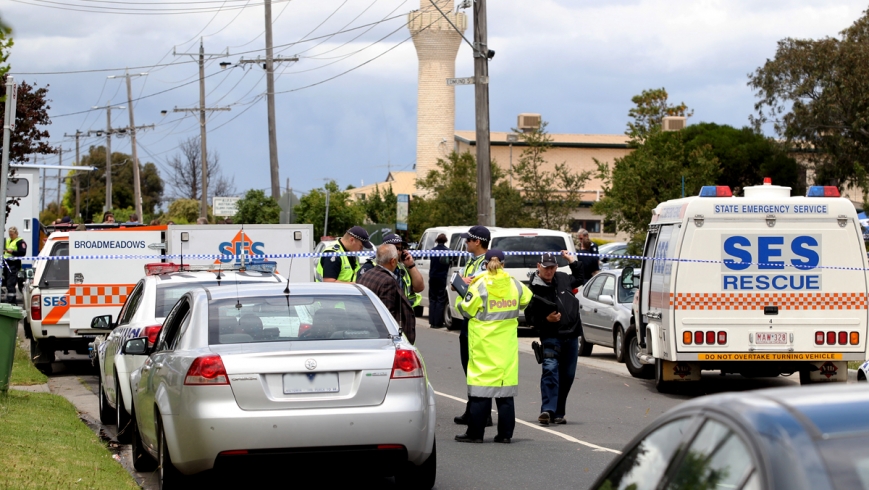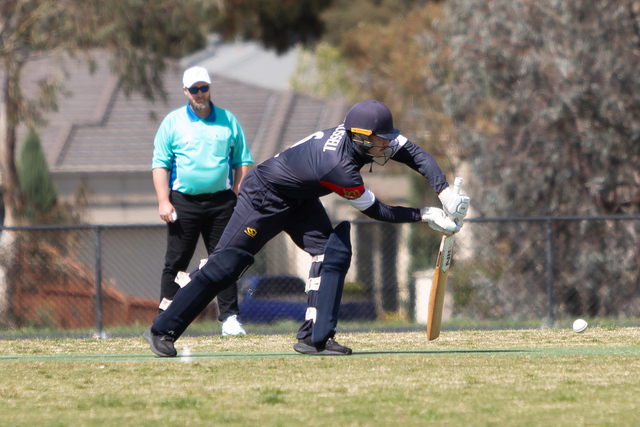LATEST: A man charged with a stabbing murder at an outer-Melbourne Islamic centre on Thursday had previously been diagnosed with mental health issues.
Erol Elmas, 22, appeared in Melbourne Magistrates Court on Friday in a hospital gown with his face “lacerated” from wounds sustained during his arrest outside the Turkish Islamic and Cultural Centre.
He is charged with having murdered Omer Ali Aysel, 68, at Dallas.
Defence lawyer Sarah Pratt, of Victoria Legal Aid, told the court her client had previously been diagnosed with schizophrenia and a drug-induced psychosis.
It was reported before Mr Elmas’ court appearance for a filing hearing that two other people were injured during the incident about 11am and that he had been under police guard at a hospital before being taken into custody.
He was led into the dock behind security glass and sat quietly between two Custody Centre officers who stood alongside.
His face displayed a number of wounds, his right arm was heavily bandaged and his left elbow was covered with a bandage that Ms Pratt described as from “multiple wounds from his arrest”.
When magistrate Charlie Rozencwajg called for and read a police summary he remarked that there was “more information in The Age” than in the document.
Prosecutor Michael Roper replied that he had been told the written summary was “very brief”.
Ms Pratt said she had been “appraised” of the alleged facts by the police informant while Mr Roper told Mr Rozencwajg there would later be DNA evidence and that police had made a forensic request on Mr Elmas.
Ms Pratt said there were about 50 witnesses involved and revealed Mr Elmas had been taysered at the scene during his arrest.
Mr Roper said interpreters would be needed for some witnesses to make their statements, there would be “extensive” DNA and that “additional victims may be involved”.
When Mr Rozencwajg told Ms Pratt that if there were to be issues such as Mr Elmas’ fitness to plead then she should start “addressing them now” before his next appearance.
She replied that that would “certainly be the case”.
Ms Pratt said he had been diagnosed some years ago with schizophrenia and also a drug-induced psychosis, and noted that his physical appearance in court reflected “multiple wounds from his arrest”.
In listing her client’s custody management issues, Ms Pratt noted medication he had been prescribed and that he had been treated in hospital for “multiple lacerations” to his face and body during arrest.
He had told her he may also have sustained a broken elbow or shoulder which was bandaged and swollen that would require further pain management.
In remanding Mr Elmas in custody for a committal mention on March 12, Mr Rozencwajg said that any psychiatric matters should now be “set in train” to which Ms Pratt responded would be “addressed at the first instance”.

















